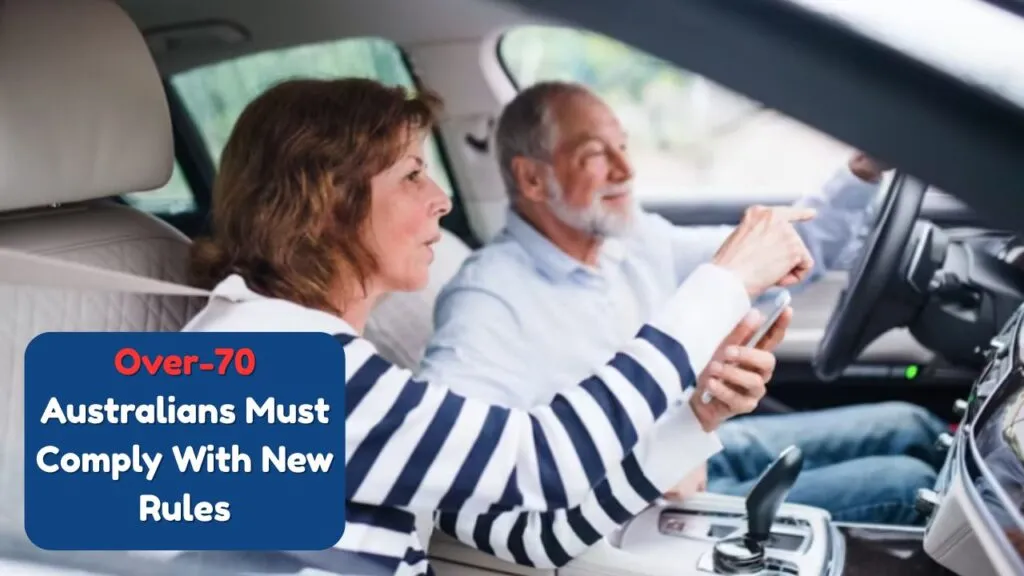Starting in 2025, Australia will roll out new driving licence rules aimed at keeping the roads safe while allowing older drivers to stay mobile and independent. These changes focus on medical fitness, driving tests, and a quicker process for licence renewal or cancellation. The government says the main goal is to identify potential risks before accidents happen, not to unfairly limit the independence of older Australians.
Why These New Rules Are Coming In
Authorities have noticed that while many seniors remain confident and careful behind the wheel, some health issues can make driving dangerous. Conditions like slower reaction time, lower vision, or reduced coordination can affect safety. The new licence policy for drivers aged 70 and older is built around regular health checks and fair assessments. Instead of applying harsh restrictions, the aim is to keep safe drivers on the road longer, as long as they can prove their fitness.
The Australian government wants to create a balanced system that protects the public but still respects the independence of older drivers. Officials also say this will reduce delays in the current licence renewal process and help identify health issues earlier.
Mandatory Health Assessments – The Key Requirement
From 2025, all drivers aged 70 and above must undergo a mandatory health check before renewing their licence. This means visiting a qualified doctor who evaluates physical and cognitive ability. The doctor will check eyesight, memory, reaction time, coordination, and overall physical health.
If the medical results are fine, the driver will be cleared to continue driving normally. However, if certain health conditions are detected, doctors can suggest licence restrictions. These could include only driving during daylight hours, within certain distances from home, or on local roads.
In severe medical cases, the licence may be suspended entirely to prevent road accidents. While this can sound strict, it is designed to prioritise safety for both the driver and others on the road. The process will rely heavily on clinical recommendations rather than automatic disqualification.
Licence Cancellation and Safety Triggers
One of the biggest shifts coming in 2025 is how fast a driving licence can be cancelled for safety reasons. Local officials will now have the authority to suspend or cancel the licence of drivers over 70 if medical tests show they are no longer safe to drive.
Under the old system, there was often a long process involving multiple warnings and appeals. With the 2025 rules, regions can take immediate action if they find major safety risks during health assessments or through repeated driving offences. Skipping the required medical check may also lead to licence cancellation.
These updates are part of a broader national plan to lower the number of fatal accidents involving senior drivers without punishing those who are still capable and responsible.
Renewal Options and Appeal Rights for Seniors
If a driver’s licence is cancelled or restricted, there are options available. Seniors can contact their local licensing office to discuss appeal rights. Many drivers may qualify for a conditional or special licence that limits driving times, locations, or vehicle types.
For instance, a conditional licence could allow a senior to drive only within their local area, or only during daylight hours when visibility is clear. This allows older drivers to maintain some mobility for essential tasks like medical appointments, shopping, or visiting family.
Those planning for renewal should prepare early by booking their medical appointments in advance and keeping their paperwork ready. Being proactive helps prevent unnecessary licence interruptions. Regular doctor visits and transparent health updates will make the renewal process smoother and faster.
How These Rules Affect Older Australians
These changes mean that passing a medical check is now the key to staying on the road after age 70. Drivers who take care of their health, attend regular doctor visits, and follow restrictions will likely have no issues continuing to drive. The goal isn’t to remove their independence but to ensure safety standards remain high across all age groups.
For many older Australians, driving is essential for staying connected and independent. The government’s plan acknowledges this by providing fair appeal options and conditional licences instead of permanent bans.
Experts believe the new framework will lower crash risks and encourage a culture of regular medical awareness among older drivers. It may also encourage families to have open conversations about driving ability, which can sometimes be a difficult subject.
Preparing for the Changes
From early 2025, senior drivers should expect reminder notices for medical assessments as part of their renewal process. It’s advised to visit a general practitioner or optometrist several weeks before renewal deadlines. Checking vision, reflexes, and prescription updates ahead of time will help avoid unexpected restrictions.
Drivers can also take defensive driving or senior safety courses to refresh their knowledge and confidence. Many states already offer subsidized programs designed for mature drivers to adapt to new road conditions and vehicle technologies. These programs also help older drivers learn how modern car safety electronics can support safer driving.
Balancing Freedom and Road Safety
The new licence rules for Australians over 70 focus on smart prevention instead of strict punishment. By combining medical checks, licensing options, and quick action against genuine safety risks, the 2025 policy protects both older motorists and other road users.
Healthy seniors who maintain their driving skills and stay medically fit will continue to enjoy their independence under the new system. The updates make Australia’s roads safer without closing the door on experienced drivers who still contribute to their communities every day.
